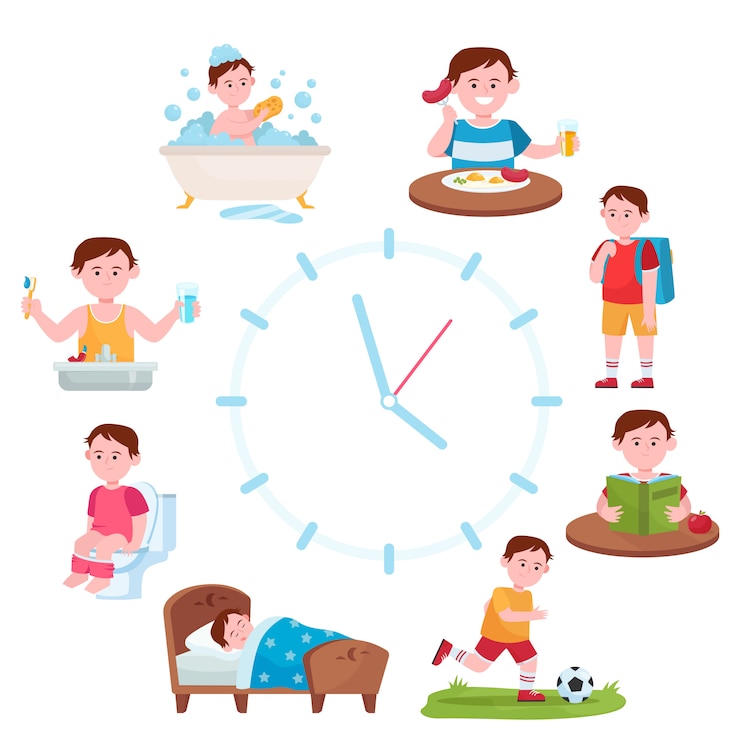
Inside: Learn effective techniques to inspire and motivate your child to listen and cooperate.
Table of Contents
If I had a quarter every time I thought, “If only these kids would listen, life would be so much easier,” I’d be wealthy. It seems they choose the least convenient moments to tune us out. Really? Do you have to insist on not wearing those red shoes right now? Why not save that for the trip back home from preschool?
Power struggles with our kids can easily derail our day, leading to a cascade of nagging, threats, and raised voices. If these battles for control with your child are a regular source of stress, it may be time to rethink how we view them. Studies suggest it’s crucial to recognize power struggles for what they truly are—an expression of a basic human need for control.
It’s time to move past the ‘struggle’ and explore what’s beneath it all—a fundamental human requirement for a sense of power.
Related read >> Positive Parenting: The Ultimate Beginner’s Guide to a Happier Family
It’s incredibly satisfying to receive an immediate response, like when I ask my child to put on their shoes or start their homework. This makes me feel acknowledged, heard, and respected. This feeling is so rewarding because it satisfies one of our basic human needs.
And guess what? Our children have this same need. If you’re raising a child who is strong-willed, they might have an even greater necessity for it. Children need to feel seen, heard, and respected just as we do, because we all have a need for a healthy sense of control.
In “The Self-Driven Child” by William Stixrud, PhD, and Ned Johnson, they delve into extensive research on stress and motivation. Their work suggests that “the most stressful thing in the universe” is having a low sense of control. Feeling powerless is a major predictor of stress, which explains why we often feel emotionally triggered when our kids don’t listen or when we’re stuck in traffic.
Related read > 75 Calm Down Strategies for Kids That Work!
If we despise feeling powerless, imagine how that affects your child in today’s world. Who decided their school for the day, their breakfast, or their afternoon plans? It’s likely that it wasn’t them. While kids aren’t ready to run their own lives fully, they seem to have less autonomy with every passing generation compared to the past.
When children don’t have a healthy sense of control, they instinctively fight for it. There’s a two-part answer to encouraging kids to listen more consistently. First, expectations are key. If we mistakenly believe our child will act like a robot, we’re bound to be disappointed when they assert themselves with a firm “No!” when it’s time to leave the park. Children need to feel a healthy level of control and independence.
Understanding that power struggles are part of healthy development can help you manage your response. This brings us to the second approach: find chances to offer your child power and leadership throughout the day. Research shows that a healthy sense of control is linked to lower stress, better emotional well-being, and increased motivation.
Everyone wants to feel in control of their environment. Here are some simple ways to meet your child’s need for autonomy today and improve their behavior and mood. When it comes to getting kids to listen without resorting to yelling, the main focus should be on reducing the frequency of power struggles rather than winning them.
Instead of wishing our kids would always follow our directions without question, maybe we should ask how different things would be if we listened to them more often.
What methods have you used to allow your children leadership and autonomy in their daily lives?
Sign up below for life-changing insights and strategies on effective discipline, emotional management for your child, and improving communication.
– 75 Awesome Calm Down Strategies for Kids That Work
– 10 Anxiety Symptoms in Children That Most Parents Miss
– Parenting an Angry Child? 10 Possible Reasons Why
– 10 Simple Everyday Ways to Improve Your Child’s Behavior and Mood
– The Best Way to Help a Child Deal with Anger Now (and throughout life)
Other helpful articles:



